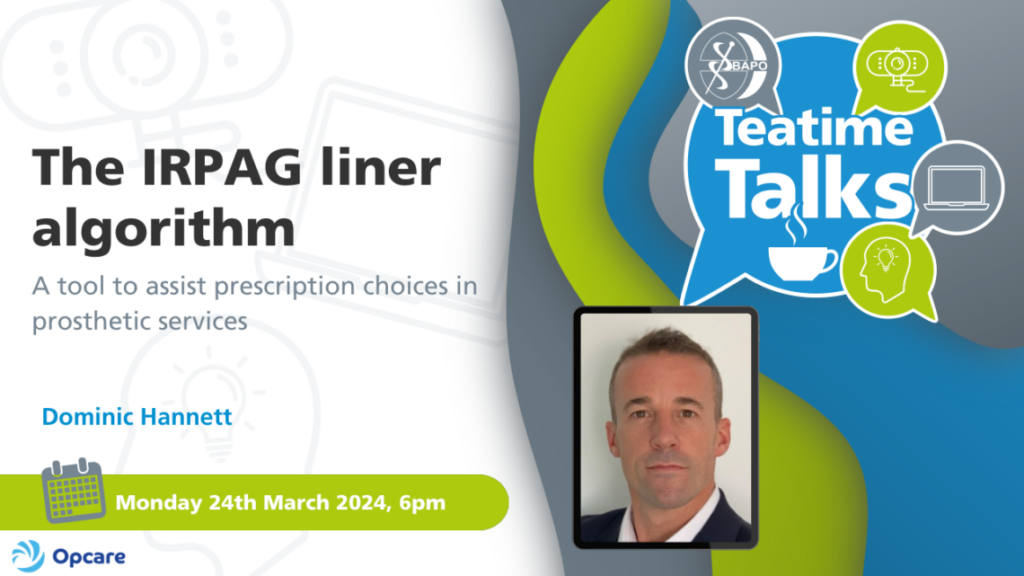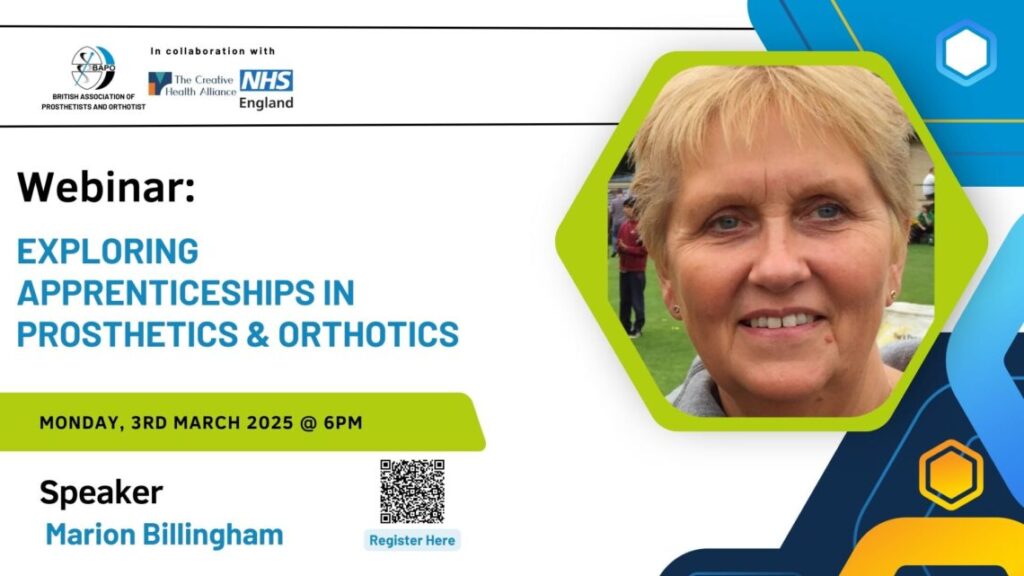News
BAPO Teatime Talk – The IRPAG liner algorithm – tool to assist prescription choices in prosthetic services
Details
This session will give an over view of the prosthetic liner algorithm that was developed from the IRPAG (inter regional prosthetic audit group). IRPAG is made up of prosthetic centres in the South East of England. which includes Brighton, Charing Cross, Crystal Palace, Gillingham, Harold Wood, Luton and Dunstable, Oxford, Roehampton & Stanmore. The algorithm was created to achieve a more consistent approach to liner prescription across NHS services based on the clinical need of the patient.

P&O Day 2025

Allard UK – ToeUP™ Textile foot drop orthosis E-shot
BAPO Webinar: Exploring Apprenticeships in Prosthetics & Orthotics
Details
Join us for an informative webinar designed to help employers and educators gain a comprehensive understanding of how apprenticeships in Prosthetics and Orthotics (P&O) work. Whether you’re considering hiring apprentices or supporting their development, this session will provide valuable insights into the process and benefits.
What You’ll Learn:
- The benefits of apprenticeships for organizations
- Key rules and processes for funding apprenticeships
- Apprentice rights and responsibilities
- The role of off-the-job training
- Insights on funding apprentice salaries
- Guidance for employers and practice educators working with apprentices
This webinar is a must-attend for those looking to leverage apprenticeships to grow their workforce and foster future talent in the P&O profession.

Tony Hudgell Rehabilitation Programme – Reference Group Application Opportunity
Phase 1 of the Tony Hudgell Rehabilitation Programme completed in August last year. The final report is saved here: The Tony Hudgell Rehabilitation Programme | South Thames Paediatric Network. We have just launched Phase 2 of the Tony Hudgell Rehabilitation Programme, which will focus on improving the care for children and young people, across the South East of England, who require management of tone caused by spasticity and/or dystonia. As part of this project, we will be developing standards of care for use by multidisciplinary teams.
We are currently seeking Expressions of Interest from Orthotists for our Reference Group. These roles need to be filled by somebody who works in the South Thames region (South East London, Surrey, Sussex and Kent). Appointed members will help us to make key decisions regarding the project direction, design and output. Further information can be found in the attached document.
Individuals can apply for the role by submitting their CV and supporting statement via email to Samantha.randall@gstt.nhs.uk (cc england.stpn@nhs.net) by 09/02/2025. You will be notified of the outcome of your application within two weeks of the deadline. Please tell us which role you would like to apply for and why you would like to be considered for the role.
I would be grateful if you could you disseminate this opportunity to your colleagues across the South Thames region, and if you could point me in the right direction for contacting BAPO members from this region. We are keen to communicate this opportunity as widely as possible across the region.
If you have any queries about the role please contact Samantha.randall@gstt.nhs.uk
BAPO – A year in pictures 2024
BAPO Teatime Talk Recording – Defining Children’s Therapeutic Footwear an analysis of their design and purpose
